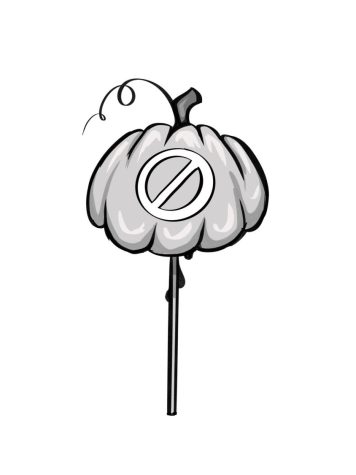Too old for trick-or-treating?
November 3, 2022
For many children in the United States, there are several passageways into adulthood: at 21 you can legally buy and drink alcoholic beverages and smoke cigarettes, at 18 you can buy a gun or a lottery ticket and at 12 you can go into a movie theater without an adult. Now, in some U.S. cities, children above 12 legally have to wave goodbye to the Halloween tradition of trick-or-treating.
For kids and teenagers, Halloween is an opportunity to have fun dressing up in costume and roaming the streets at night in search of houses with their porch lights lit and candy waiting to be collected. While wearing costumes is part of the fun that every generation can take part in, some Americans hold that the classic cardio-candy exchange is only for those in their toddler and preteen years. Teens and young adults have been barred via fines and stern disapproval from certain neighborhoods.
Ashley Rabenold is a student with a toddler who loves the spirit of Halloween. While she doesn’t take the notion lightly that people — such as teens and young adults — could potentially seek to harm others, she doesn’t see older trick-or-treaters as the threat these laws say they are. She is unbothered by older people going trick-or-treating, as long as they dress up in costume as custom dictates.
“I think whatever keeps you young as long as possible [should be allowed],” Rabenold said. “The difference [is when] the people that go out don’t wear costumes and they come in just their coats; I don’t feel like that really sticks to the idea of things.”
She doesn’t approve of the eye-balling technique either, meaning the studying of a teenager or young adult to see whether they deserve candy.
“[I don’t like when] people open their doors, and they see a teenager in front of them and they’re like, ‘aww, man.’ Don’t judge like that,” Rabenold said.
Administrative Assistant for the ARC Colette Marie remembers the fun of the cardio-candy exchange from when she was on the cusp of her teenage years.

“I might have been 12 or 13 at least, and I was running around trick-or-treating; it was really fun. You’re so capable as an older kid of running and trying to get as much as you can before you have to go back home, so it’s kind of exciting.” Marie said. “I just don’t feel like begrudging anybody that fun. It feels Scrooge-y to me. When people say, ‘I don’t think that teenagers should be participating in this. It’s for the little kids.’ I’m like, ‘I don’t give a damn. Who made that rule?’”
Marie especially loves the costumes that teenagers and young adults make, and she looks forward to seeing their creativity every year when they trick-or-treat at her door.
“I would like to see the community be much more welcoming and have a sense of humor. [We should] encourage the creativity that is sometimes involved in the costumes that teenagers have. Most of the teenagers — unlike the little children that are getting dressed by their family — are making their costumes themselves,” Marie said. “I think that it’s an opportunity to engage with somebody you don’t know that well to ask, ‘How did you do that?’ or, ‘Why did you pick that one?’”
Richard Middleton-Kaplan works as a coordinator at the Academic Resource Center, and he doesn’t agree with the age-limiting candy hunting laws. He especially doesn’t buy into the argument many use to permit age-limiting laws, which is that some adults may run out of candy to give.
“Whether it runs out with a whole bunch of people who are under thirteen or a whole bunch of people who are under thirteen and a tiny smattering of people who are over thirteen, there’s still other houses on the route even if one runs out,” Middleton-Kaplan said.
Addressed with the alternative that teenagers can go to grocery stores to buy candy, he disagrees that this is an acceptable alternative.
“It’s a fun holiday, so it’s [about] being together and enjoying the celebratory thing, which is not the same thing as going to the store and making a purchase,” Middleton-Kaplan said.
A night of sugary treats and costumed cavalries is sometimes the best way to de-stress and have fun, no matter what age.





